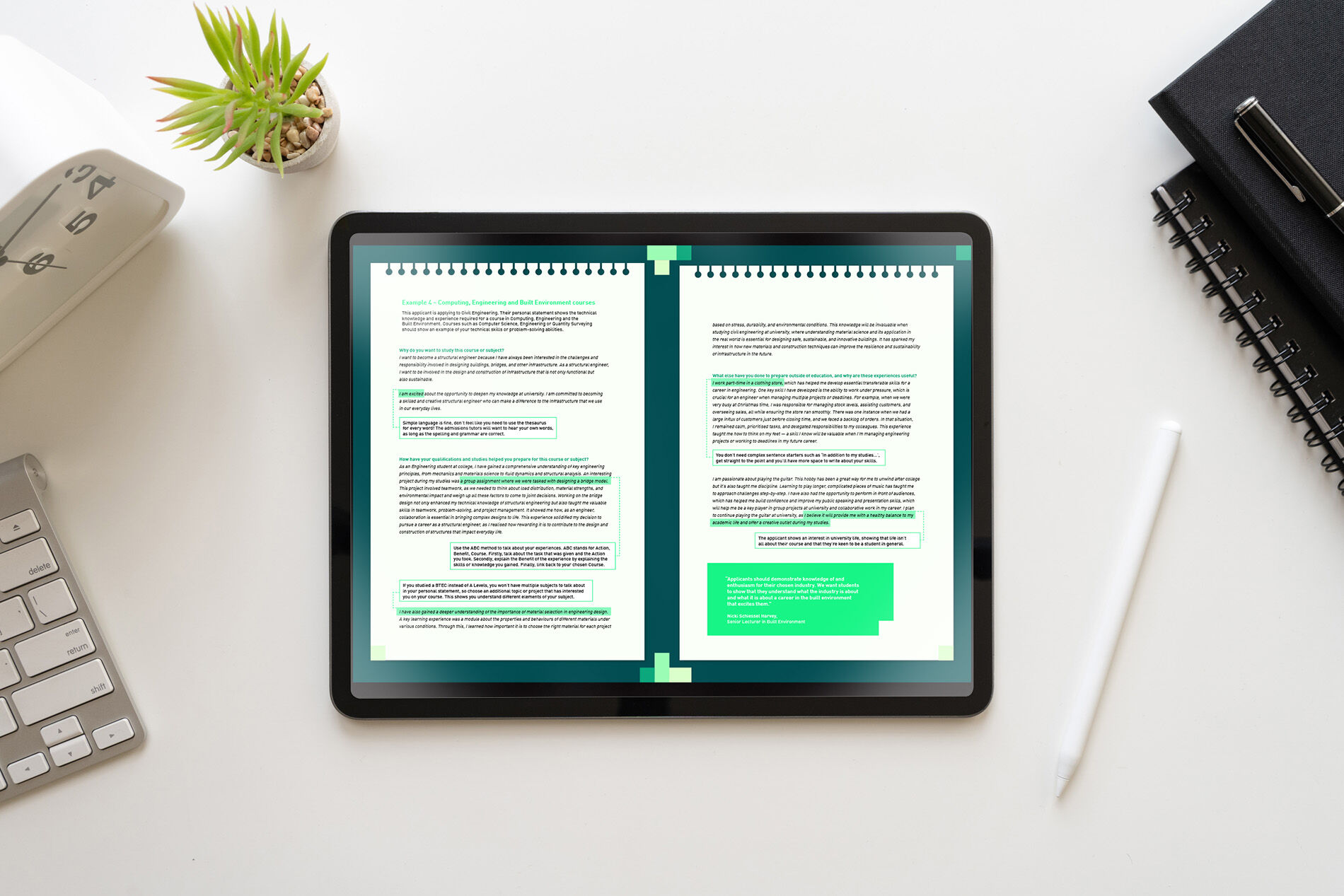It's not always easy talking about yourself and all the things you've achieved. Our step-by-step guide to starting your personal statement will have you putting pen to paper in no time.
1. Do your research
Take a look at as many examples as you can of personal statements to get an idea of how it should be structured and to get the right tone of voice. We have some handy examples in our personal statement guide.
Remember that these examples are there for inspiration, not to be copied!
2. Break down the three questions you need to answer
You're required to answer three different questions when writing your personal statement, these are:
1. Why do you want to study this course or subject?
You could talk about:
- Your motivations for studying this course(s)
- Your knowledge of this subject area and personal interests
- Your future plans and why this is a good fit for you
2. How have your qualifications and studies helped you prepare for this course or subject?
You could talk about:
- The skills and knowledge you’ve gained from education or training and how this will help you succeed in your chosen subject
- What relevant or transferable skills you have that make you a great candidate
- Any additional educational achievements, such as being a head boy or head girl
3. What else have you done to prepare outside of education, and why are these experiences useful?
You could talk about:
- Work experience, employment, or volunteering and how they’ve helped you develop the skills needed for your chosen course or future career
- Hobbies and any extracurricular or outreach activities that have taught you transferable skills you can use on your course
- Achievements outside of school or college
3. Get it all down
Mind-map everything you can think of that applies to the three questions and the key skills those experiences have taught you.
Your studies, work experience, part-time job or hobby doesn’t have to be related to your chosen course. You just need to show how this experience has provided you with transferable skills that you will need at university.
For example, did working on a presentation teach you to work independently? Or, maybe being a part of your hockey team has taught you to work with others. Whatever it is, write it down and once you've got all your ideas on paper you can pick your favourites that really demonstrate why you're the perfect candidate for your course.
Open Days
Join us for an on-campus Open Day where you'll be able to learn about our courses in detail, get advice for your application and explore our innovative £400m facilities.
4. Start writing!
Don’t be scared to start writing, your first draft doesn’t have to be perfect, you can go back and make changes.
Make sure to use the ABC method to structure your paragraphs. It's a great way tp showcase your experiences in a way that links to your chosen course.
5. Draft, draft, draft
Write several drafts and get feedback from others. It can be hard to spot your own mistakes or make improvements to your own writing, but others will be able to spot where changes can be made.
Once you’ve redrafted, show someone else – your teacher, your parents, your neighbour – whoever will look at it!
Don't forget to use our handy application checklist to make sure you've done everything before you submit!






